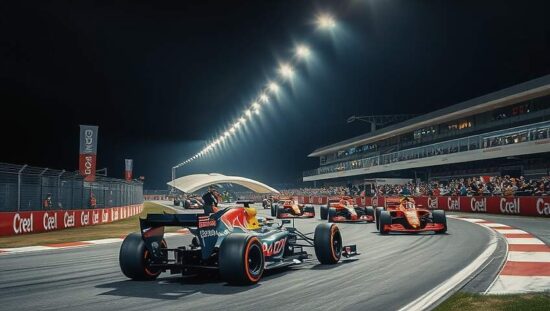The Las Vegas Grand Prix concluded with a dramatic victory for Red Bull’s Max Verstappen, a result that, while bolstering his own championship aspirations, simultaneously underscored the precarious position of his rivals and intensified the pressure on McLaren’s Lando Norris. Norris, starting from pole position, secured a valuable second place, extending his lead in the World Championship standings. This performance elevates him to a commanding 30-point advantage over his McLaren teammate, Oscar Piastri, raising the distinct possibility of him clinching the title at next week’s Qatar Grand Prix.
Verstappen’s win, while impressive, is more a consequence of the competitive landscape than a resurgence in dominance. The escalating championship battle highlights the strategic evolution within the sport; McLaren’s consistent performance now poses a significant challenge to Red Bull’s traditional stronghold. The reliance on competitor errors for Verstappen’s title hopes reveals a vulnerability rarely seen from the reigning champion, adding layers of intrigue to the remaining races.
The broader picture reveals a shifting power dynamic within Formula 1. George Russell’s third-place finish for Mercedes offered a glimpse of potential, yet the team’s ongoing struggles to consistently challenge McLaren and Red Bull remain a point of critical examination. The results further down the order – with Piastri, Kimi Antonelli, Charles Leclerc, Carlos Sainz and Isack Hadjar – illustrate the increasingly tight competition mid-field.
The contributions of Nico Hülkenberg securing two points for Sauber and Lewis Hamilton grabbing a single point for Ferrari offered small consolations for those teams visibly trailing the frontrunners. However, these performances serve as a reminder of the substantial gap between the championship contenders and the rest of the grid.
The Qatar Grand Prix promises to be a pivotal moment. With Norris holding a significant points buffer, the pressure will be immense not just on Verstappen, but on all drivers aiming for the championship, as the sport navigates a season defined by strategic maneuvering and the ever-evolving balance of power.





